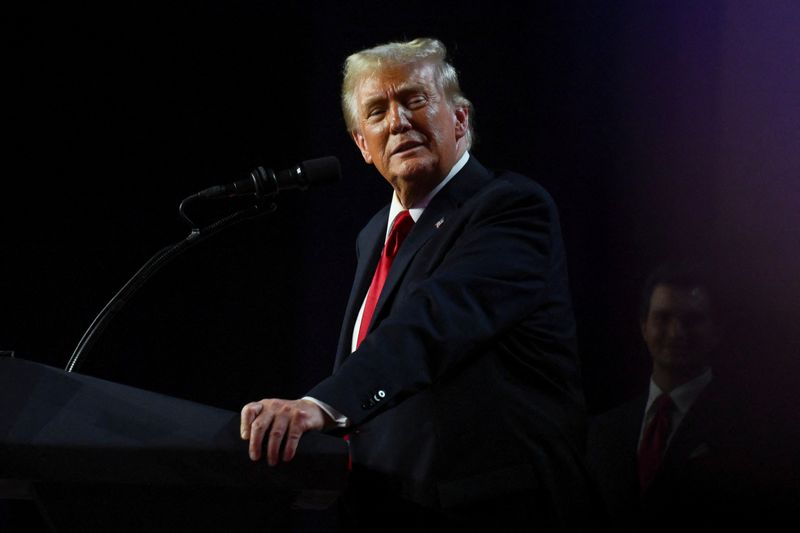Investing.com — The imposition of tariffs under a potential second Trump administration is expected to prompt a response from affected nations that mirrors the measured retaliation strategies observed during his first term.
Analysts at Capital Economics suggest that while countries are likely to retaliate against the economic strain of U.S. tariffs, these responses will aim to limit further escalation and avoid significant domestic repercussions.
Historically, every targeted country except Japan retaliated to U.S. tariffs during Trump’s first term. However, these retaliatory measures were calculated to minimize the risk of a spiraling trade conflict.
For instance, nations imposed tariffs on politically sensitive U.S. exports, such as the European Union targeting Harley-Davidson (NYSE:) motorcycles and Bourbon whiskey.
This strategy sought to pressurize U.S. policymakers while safeguarding local economies from inflationary impacts.
Countries also adjusted their approach over time. Instead of solely imposing counter-tariffs, they engaged in negotiations, offering concessions to the U.S. in exchange for tariff relief.
Mexico and Canada managed to mitigate some trade restrictions through adjustments in the USMCA agreement, while nations like Japan and the EU negotiated market access and purchase commitments to ease tariff threats.
These concessions often extended to sectors deemed politically or economically significant to the U.S., such as agriculture and manufacturing.
Despite these efforts, retaliatory measures and concessions frequently failed to produce significant policy reversals from the U.S. under Trump.
Additionally, exchange rate adjustments added complexity to the situation. When currencies weakened due to U.S. tariffs, the Trump administration accused countries of devaluation to counteract tariffs.
This led to further threats, as seen with Turkey and South American nations like Brazil and Argentina.
A second Trump administration could see a similar dynamic, though analysts warn of possible shifts in U.S. trade policy objectives.
If tariffs are framed as a revenue-generating tool for domestic tax cuts, rather than leverage for trade negotiations, it may become more difficult for countries to strike deals.
In such scenarios, many governments might opt for limited retaliatory measures while relying on currency adjustments as a buffer.
Geopolitical alignments could further influence tariff policies. For instance, while the Biden administration rolled back tariffs on allied nations such as Japan and the EU, restrictions on adversaries like China and Russia were maintained or tightened.
This trend suggests that alliances may dictate the likelihood of tariff relief or persistence.
In the face of increased U.S. tariffs, nations are likely to retaliate with targeted countermeasures that maximize political pressure on the U.S. while minimizing broader economic disruption.
Where feasible, they may seek alternative solutions through trade agreements or strategic compromises. However, there is a general lack of global enthusiasm for prolonged trade conflicts.
